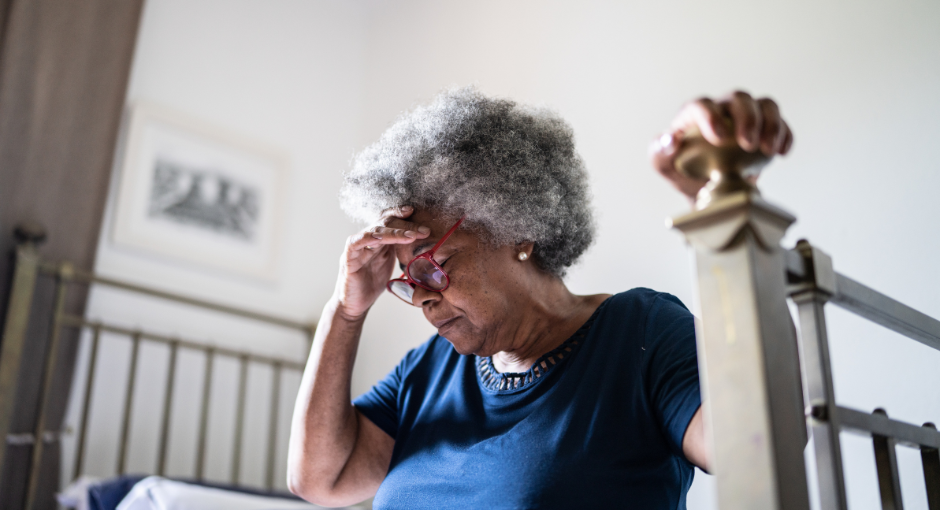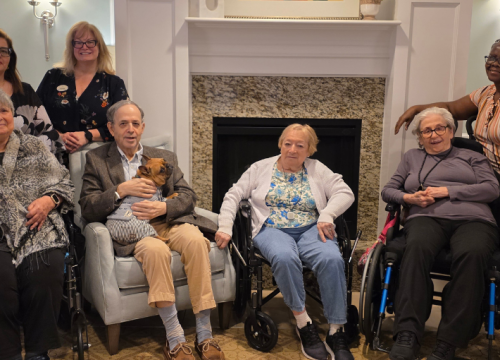Exploring Next Steps in Care: Financial Impact & Resources That Can Help

As Parkinson’s disease (PD) progresses, you or your loved one may need more day-to-day help. This article will help you plan for what comes next in care, complete with a list of resources.
Planning for Care and Financial Implications
Consider what type of care you might be seeking and what resources are available to you. Medicare and private insurance do not cover many of the costs associated with care. Depending on your situation, Medicaid, veterans benefits or long-term care insurance may be available to help. Planning ahead is key to making sure that when the time comes, there will be an option that works practically and financially for your family.
Watch our Webinar
Exploring Next Steps in Care to help you decide when it's time for outside help.
Whether you are a person with PD or a care partner, it’s important to identify care needs early. Have conversations early and often about care planning throughout the disease journey. Doing so can ease future decision-making and provide peace of mind when immediate care is needed.
Creating a list of your care needs can help ease the transition from independence to receiving support. Discussing preferences with everyone involved ensures clear expectations and establishes boundaries before care begins.
Planning for care can be challenging, but since future needs are unpredictable, try to avoid making promises — such as never considering a nursing home or hospital. Emotions are a natural part of these discussions, so approach them with an open mind and ensure everyone is in the right headspace to make informed decisions together.
It is a common misconception that Medicare and private health insurance may cover long-term in-home care or residential care. Unless a person has long-term care insurance or is eligible for Medicaid or veterans benefits, any care must be paid out of pocket. This can be extremely stressful for families as they navigate financial and care needs at the same time. Setting up a savings plan early on or figuring out how to pay for care that may be needed in the future can help loved ones minimize stress and lead to better care outcomes.
When to Consider Outside Help
As PD progresses differently in each person, everyone’s timeline and care needs vary. Deciding when it’s time for outside help takes consideration. You might need help with smaller things at first, but eventually full-time care might be necessary. It can be hard to accept when you need full-time care. However, as care needs progress, it might be time to consider outside care options.
Questions to ask yourself as a care partner when considering outside help:
-
Physical Limitations: Am I physically able to handle all the caregiving tasks required? Am I getting enough sleep each night to continue to care for my loved one?
-
Emotional and Mental Strain: Do I often feel overwhelmed, stressed or anxious? Am I able to find time for self-care and activities that recharge me?
-
Increased Care Needs: Do I feel confident in managing all aspects of care required?
-
Safety Concerns: Is the quality of care I provide declining due to my limitations? Does our home have safety concerns? Check out the AARP HomeFit Guide.
-
Personal Well-being: Do I have enough time for my own needs, work or obligations?
-
Burnout Signs: Am I neglecting my own health needs or experiencing stress-related symptoms?
-
Lack of Skills or Knowledge: Are there any aspects of caregiving where I could benefit from additional help?
-
Family Support: Is there tension or strain within the family related to caregiving responsibilities?
6 Types of Assistance
There are many types of assistance when it comes to care, including:
1. In-Home Care
Hiring a home health aide can help a person with Parkinson’s stay at home longer by assisting with daily activities such as dressing, bathing, medication reminders, meal preparation and companionship. However, home health aides are not nurses and have limitations in the care they can provide. If nursing care is needed, a home health aide may not be the best option. When considering this support, consult with the agency to understand the aide’s responsibilities and ensure it is the best fit for your family’s needs.
In 2024, the national median cost of in-home care was $213 per day. Financial assistance for in-home care may be available through a government or community program, long-term care policy, or a veteran's benefit or pension.
Explore home care agencies that are Community Partners of the Parkinson's Foundation. Partners complete a curriculum of PD education through training. See our full list of sites.
2. Assisted Living
Assisted living is a long-term care option that provides personal care support services. Care provides meals, medication management, bathing, dressing and transportation. Some facilities are geared to help people with memory and cognitive concerns.
The national median cost of assisted living in 2024 was $194 per day. Assistance with the cost of care may be available through long-term care insurance, veterans' benefits or Medicaid (in some states), however, private pay is the most common.
Find assisted living communities that are Community Partners of the Parkinson's Foundation. Partners complete a curriculum of PD education through training. See our full list of sites.
3. Memory Care
Memory care is a specialized type of care designed to meet the specific needs of people with memory problems. Some people with PD may benefit from memory care units in an assisted living facility or skilled nursing facility. They have structured activities and staff trained in caring for those with memory impairment.
Costs for these facilities vary, averaging from around $6,000 to $9,000 a month.
4. Long-term Care or Skilled Nursing Facility
These facilities are for people who require 24-hour monitoring and medical assistance. Services vary by facility. The national median cost of a semi-private room in 2024 was $410 per day, and a private room was $432 per day.
If the person with Parkinson’s needs long-term care in a skilled nursing facility, it is not covered by Medicare but can be covered by Medicaid or veterans assistance programs. For families planning to apply for Medicaid or VA assistance, or those who need to protect resources for a spouse, consulting with an attorney specializing in long-term care may be helpful. The National Academy of Elder Law Attorneys provides an online directory at www.naela.org/findlawyer.
Find long-term or skilled nursing facilities that are Community Partners of the Parkinson's Foundation. Partners complete a curriculum of PD education through training. See our full list of sites.
5. Adult Day Programs
These local centers provide a variety of services and activities. They include meals, social activities, health monitoring and some offer transportation. The national median cost of these programs in 2024 was $100 per day, and some insurance companies may cover it.
Search your local Area Agency on Aging for programs near you and the services they provide.
6. Low-Cost Options
These low-cost options can provide help with care:
- Your Local Area Agency on Aging provides information about residential care options in the area. Find your local office here.
-
The Medicare Nursing Home Compare Tool provides a list of nursing homes by zip code. Use their Compare Tool here.
Resources Designed to Help with Care
Contact the:
-
Parkinson's Foundation Helpline for local referrals and tailored information on care resources. Contact 1-800-473-4626 or email Helpline@Parkinson.org.
-
Area Agency on Aging may provide additional home care listings and guidance on eligibility for assistance programs. Call 1-800-677-1116 or find your local here.
The websites below can help you find local private caregivers. When hiring a private individual, it is important to review background checks and references.
The following may be helpful:
-
Family Caregiver Alliance: Hiring In-Home Help
-
Parkinson’s Foundation: Care Partner Guide (see Chapter 5)
See Our Full List of Care Partner Resources
Private Care Manager
If you are struggling to find care, hiring a private care manager can help you navigate local services and programs. This can be especially beneficial for long-distance care partners. The Aging Life Care Association has an Aging Life Care Expert Search feature.
Learn More
Learn more with the following Parkinson’s Foundation resources:
-
Fact Sheet: Exploring Next Steps in Care
-
Fact Sheet: Finding the Right Assisted Living Facility
-
Fact Sheet: Finding the Right Skilled Nursing Facility
-
Podcast Episode: Navigating Facilities
Asking for help is a strength. Emotions can vary during times of seeking care and caretaking. Practice flexibility, patience and self-compassion throughout this process.
We are here to help. Call the Parkinson's Foundation Helpline 1-800-4PD-INFO (1-800-473-4636) and explore our Resources and Support page.
Related Materials
Pain in Parkinson's Disease
Occupational Therapy and PD
Nutrition and PD
Related Blog Posts

10 Tips for Playing Pickleball to Stay Active with Parkinson’s

